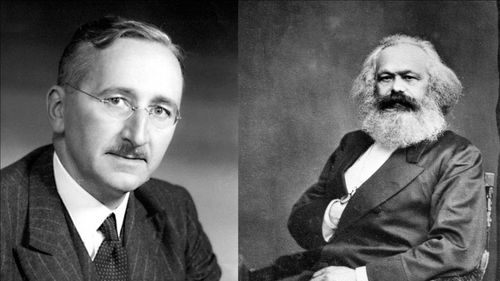9 Unorthodox Economists - Their Books and Ideas
Sep 25, 2023 · 2 mins read
0
Share

Knowledge grows when outsiders challenge the orthodoxy, and economists are no different. Here’s a selection of historical mavericks and challengers (from both Left and Right) from my book 50 Economics Classics: Your Shortcut to Key Ideas in Capitalism & Finance.
Save
Share
Friedrich Hayek - The Use of Knowledge in Society (1945)
Planning and control is good in theory, but in practice economies are most efficient when millions of people act independently using the information available to them through prices.
Save
Share
Karl Marx - Das Kapital (1867)
The interests of labor and capital are perennially in conflict. When an economic system treats workers as mere objects, it is setting itself up for revolution.
Save
Share
Ludwig Von Mises – Human Action (1949)
The triumph of the market economy over traditional modes of political economy was the most important event in history, allowing the power of individuals to be unleashed. Economics has laws which no person society or government can escape
Save
Share
Murray Rothbard - Anatomy of the State (1974)
The nature of the state is the extend itself, at the expense of citizens. Be wary of intellectuals – including economists – whose wages and status depend on the expansion of state power.
Save
Share
Karl Polanyi - The Great Transformation (1944)
‘Free’ markets, far from being a natural force, are very much a human invention which must serve the interests of humanity. Markets serve society, not the other way around.
Save
Share
EF Schumacher - Small Is Beautiful: Economics as if People Mattered (1973)
Mass production and consumption is not the only way of organizing the world economy. A new economics must arise which takes more account of people than output.
Save
Share
Amartya Sen - Poverty and Famines (1981)
People starve not because there isn’t enough food, but because circumstances suddenly change. More important than the production of enough food is ensuring that people are entitled to food despite changing conditions.
Save
Share
Thorstein Veblen - Theory of the Leisure Class (1899)
Societies are driven by emulation and the need for status. The great goal of capitalist life is not to have to work - or to take on the appearance of not needing to.
Save
Share
Henry George - Progress and Poverty (1879)
The best and fairest way to ensure opportunity is a tax on land. When land, rather than people and production, is taxed, prosperity increases and inequality decreases.
Also read:

Save
Share
0